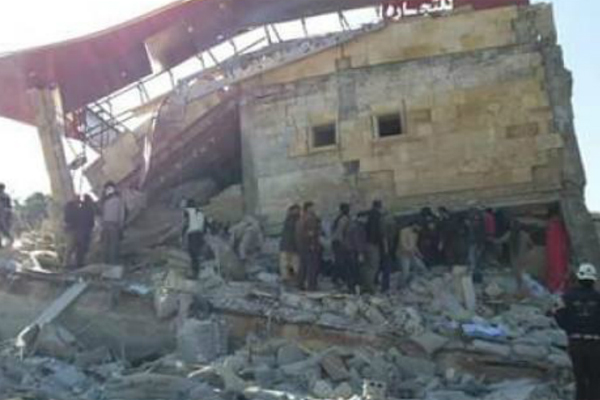
Image courtesy: MSF. For illustration only.
Nearly 1,000 killed in attacks on health workers in 2014-15
GENEVA, May 27, 2016
Nearly 1,000 people were killed in attacks on health centres worldwide over the past two years, almost 40 per cent of them in Syria, the World Health Organisation (WHO) said on Thursday in its first report on the issue.
The United Nations agency documented 594 attacks resulting in 959 deaths and 1,561 injuries in 19 countries with emergencies between January 2014 and December 2015.
Syria, torn by civil war since 2011, had the most attacks on hospitals, ambulances, patients and medical workers, accounting for 352 deaths. The Palestinian territories of Gaza and the West Bank, as well as Iraq, Pakistan and Libya, followed.
Some 62 per cent of all attacks were deemed intentional and many led to disruption of public health services.
"This is not an isolated issue, it is not limited to war zones, it is not accidental. The majority of these are intentional," Dr Bruce Aylward, executive director of WHO's emergency programme, told a news briefing.
"It is getting more and more difficult to deploy people into these places, it is getting more and more difficult to keep them safe when they are there and it is getting more and more difficult to ensure they survive, let alone recover in crises."
Aylward, speaking later at an event at the WHO's annual ministerial assembly, said: "It is not stopping, two days ago a suicide bomber blew himself up and took 40 people with him at least in one of the main hospitals in Latakia (Syria)."
The casualty figures include 42 killed and 37 wounded in a US air strike on a Medecins Sans Frontieres (Doctors Without Borders) hospital in Kunduz, Afghanistan, last October.
A US military report last month said the incident did not amount to a war crime but was caused by human error, equipment failure and other factors. MSF has called for an independent inquiry.
"Last year, 75 hospitals managed or supported by MSF were bombed," Dr Joanne Liu, president of MSF International, told the WHO event.
"From Yemen to Syria, from Central African Republic to Niger, health facilities are looted, burned and bombed. Patients are slaughtered in their beds. Health care workers are abducted, assaulted or killed," she said.
WHO said 53 per cent of the attacks were perpetrated by states, 30 by armed groups and 17 per cent remain unknown.
"One of the most important rules of war is that you don't attack health care facilities, health care providers, the sick, the disabled. So these attacks do represent gross violations of international humanitarian law," said Rick Brennan, WHO director of emergency risk management and humanitarian response.
"Violations of international humanitarian law, if proven, can be considered war crimes and the perpetrators can be taken to the International Criminal Court," he said. - Reuters







